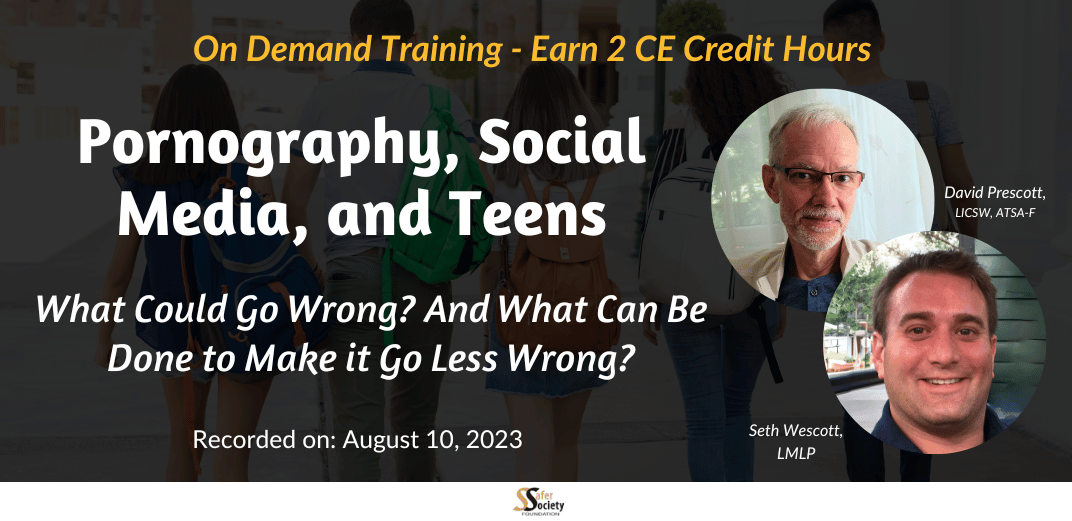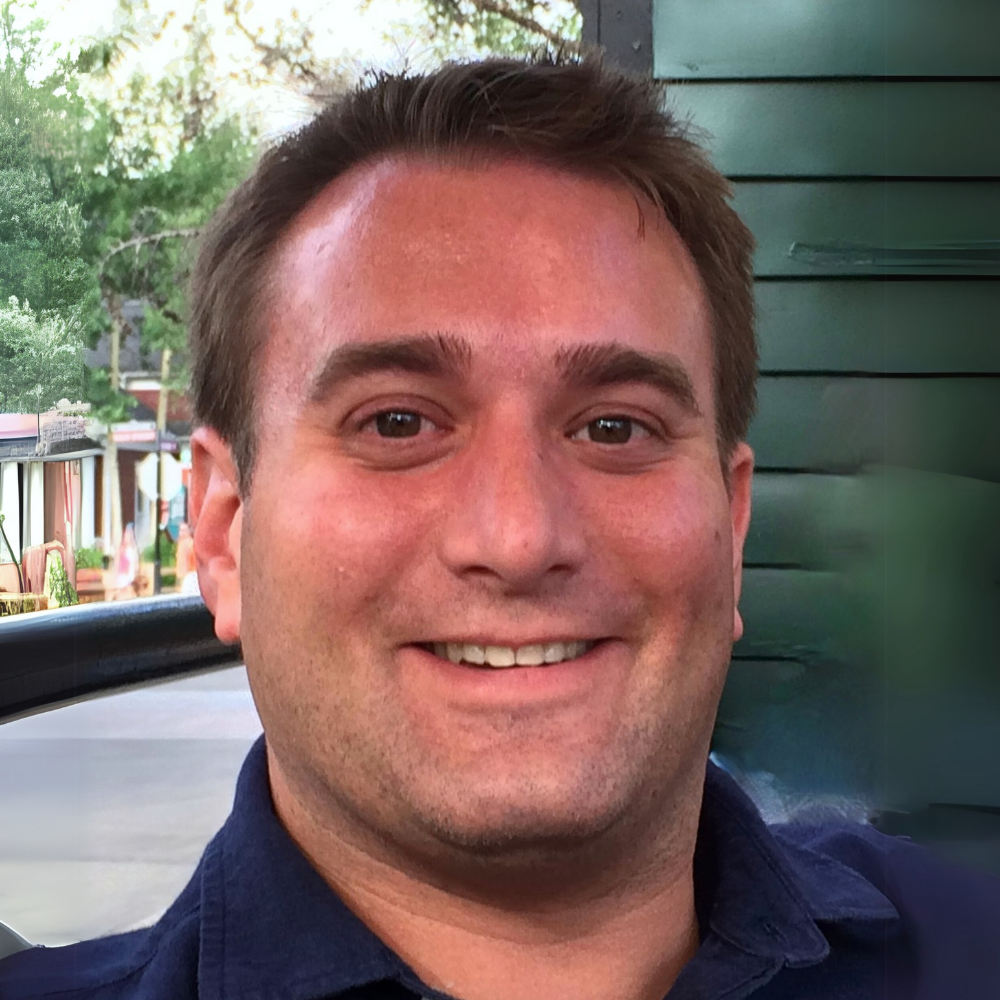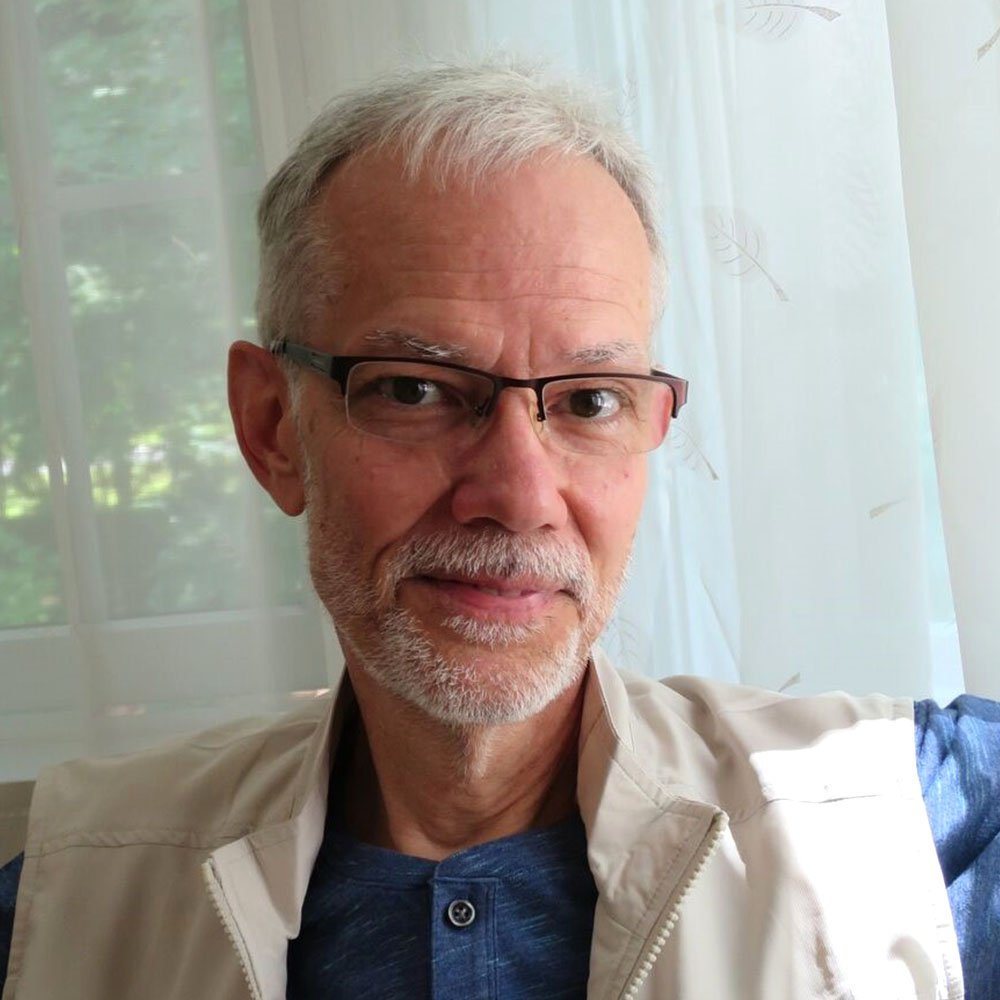
Pornography, Social Media, and Teens: What Could Go Wrong? And What Can Be Done to Make it Go Less Wrong?
Already purchased an On Demand training?
Click here to access your Safer Society On-Demand Training Center account.
Social media is the method of communication preferred by adolescents and young adults, and many social media apps have become a primary means for viewing sexually explicit media. Rather than searching for content that matches their developing sexual interests, many adolescents simply scroll through whatever is on their feed, often finding sexually explicit material. What effect is this having on their mental health and concept of sexuality? How can professionals help them navigate the complexities of sexual development in a climate that encourages viewers to “like” and “subscribe.”
 This workshop addresses the impact pornography and social media are having on teens. The presenters discuss current trends and ethical dilemmas such as:
This workshop addresses the impact pornography and social media are having on teens. The presenters discuss current trends and ethical dilemmas such as:
- The role of social media apps and websites such as Snapchat, MeetMe, Yubo, Kik, and TikTok
- Limiting screen time versus teaching its best use
- The balance between encouraging healthy behaviors and discouraging unhealthy behaviors
Prescott and Wescott explore the challenges of balancing adolescents’ immediate needs with their long-term development, particularly in terms of addressing problematic behavior while fostering healthy adult sexuality. The discussion also covers effective ways to communicate with young people about sexually explicit media that contains violent, non-consensual situations, and stereotypes based on gender and race. The complexities of informed consent, including the distinction between agreeing to conversations and engaging in activities like “sexting” are addressed. The presenters also highlight positive ways to utilize social media platforms.
Topics to be covered include:
- Recent research trends in pornography use by adolescents and young adults
- Pornography’s movement from “tube sites” to social media
- The impact of porn on adolescents and young adults
- If pornography is a fact of life for young people, how can its harmful effects be reduced while also using the images in pornography as a way to understand true, healthy sexuality?
1) Analyze existing definitions of pornography.
2) Describe the impact of social media on teens’ understanding of sex.
3) Construct treatment plans with clients and families on topics such as consent, pornography use, sexting, and healthy sexuality.
4) Explain to parents, school counselors, and probation officers how to distinguish between problematic behaviors and those that are reflective of adolescent development.
Audience
This training is for professionals who work with adolescents and young adults who show signs of sexual behavior problems or who are at risk due to their media consumption, such as social workers, psychologists, clinical counselors, mental health providers, and educators.
Content Level
Disclosure
Continuing Education Approval
American Psychological Association (APA)
Safer Society Foundation, Inc. is approved by the American Psychological Association (APA) to sponsor continuing education for psychologists. Safer Society Foundation, Inc. maintains responsibility for this program and its content.
Who's Presenting

Seth Wescott, LMLP, ATSA-F
Seth Wescott is a Licensed Master’s Level Psychologist and has been working with individuals with problematic sexual behaviors since 2002. He has worked in maximum security prisons for both adults and adolescents as well as various community-based settings. In private practice, Seth conducts pre-disposition and pre-adjudication psychosexual evaluations of adults and adolescents. He serves as chair of the ATSA Public Policy Committee, and is an ATSA Fellow. He is a certified trainer for Static-99R, Stable-2007, and Acute-2007 risk assessments. Seth is a Professor of the Practice at the University of Kansas and an Adjunct Professor of Counseling at Mid-America Nazarene University.

David Prescott, LICSW, ATSA-F
A mental health practitioner of 40 years, David Prescott is the Director of the Safer Society Continuing Education Center. He is the author and editor of 25 books in the areas of understanding and improving services to at-risk clients. He is best known for his work in the areas of understanding, assessing, and treating sexual violence and trauma. Mr. Prescott is the recipient of the 2014 Distinguished Contribution award from the Association for the Treatment and Prevention of Sexual Abuse (ATSA), the 2018 recipient of the National Adolescent Perpetration Network’s C. Henry Kempe Lifetime Achievement award, and the 2022 recipient of the Fay Honey Knopp Award from the New York State Alliance for the Prevention of Sexual Abuse and New York State ATSA. He also served as ATSA President in 2008-09. Mr. Prescott currently trains and lectures around the world. His published work has been translated into Japanese, Korean, German, French, Polish, and Southern Tutchone. He has served on the editorial boards of four scholarly journals.
